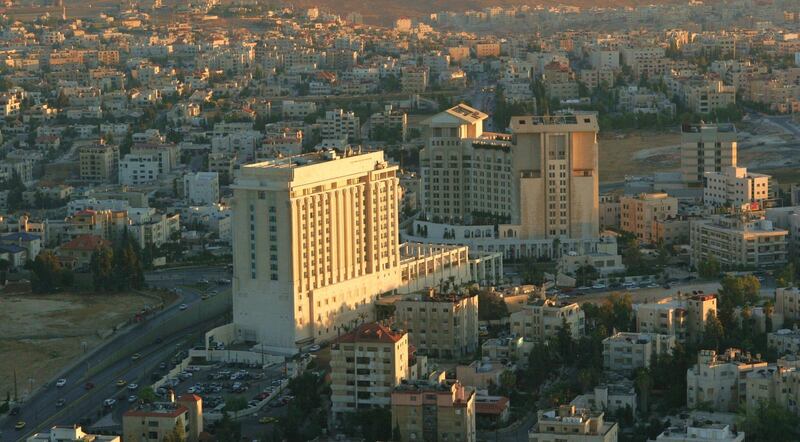Jordan's four-year agreement with the International Monetary Fund for $1.3 billion (Dh4.8bn) of funding broadly supports its economy and reform agenda, but the country's fiscal consolidation efforts continue to face headwinds amid historically low growth, ratings agency Fitch said.
Jordan’s budget performance in 2019 that “fell short of targets” and the agreed budget for this year, underpin the kingdom's economic difficulties, Fitch said. Prior to the agreement with the Washington lender, both budgets projected a deficit of 3.9 per cent of gross domestic product.
“While we expected Jordan to negotiate a fresh and expanded IMF programme, the budget numbers are worse than our forecasts,” Fitch said. “External finances, [however], improved as expected in 2019, with reserves remaining robust.”
The preliminary agreement reached with the IMF at the end of January on a $1.3bn four-year extended fund facility (EFF) helps supports Jordan's economic growth and improve its fiscal and external finances. The kingdom's economy since 2010 has expanded at an average of 2 to 2.5 per cent. The IMF projects the economy will grow 2.1 per cent this year while inflation will remain subdued at below 1 per cent.
“The new EFF could also be subject to slow implementation and delayed disbursements, but the risk is reduced to some extent because it does not include new taxation,” Fitch said. The budget this year assumes 10 per cent growth in domestic revenue. It expects an increase of 733m Jordanian dinars (Dh3.8bn) in revenue, on the back of 4 per cent rise in nominal GDP and stronger implementation of the income tax law.
“This may prove optimistic, which would put Jordan at risk of missing its deficit target again, although the impact on the deficit may be contained by under-execution of plans for a 33 per cent rise in capex [capital expenditure],” Fitch said.
Economic growth is a priority of the new programme, which has set 3.3 per cent expansion as a medium-term target. Jordan's growth averaged 6.5 per cent in 2000-09 when external conditions, both economically and politically, were more favourable.
Jordan is trying to balance its debt obligations with economic growth to provide jobs for a fast-growing population where 40 per cent of 15 to 35-year-old are unemployed. The country, which relies of foreign grants and aid to finance its fiscal and current account deficits, imports more than 90 per cent of its energy needs, which makes it vulnerable to oil price fluctuations.
The IMF package said gradual fiscal consolidation coupled with reform initiatives will help reduce government debt. The lender called on Jordan to reform its electricity sector and refine its allocation of subsidies to households based on need.
The latest deal supersedes and expands the previous $723 million three-year EFF agreed in August 2016, under which Jordan accessed only $309m. Reforms progressed slowly in the face of public protest, which forced a change in the country’s government in 2018.








